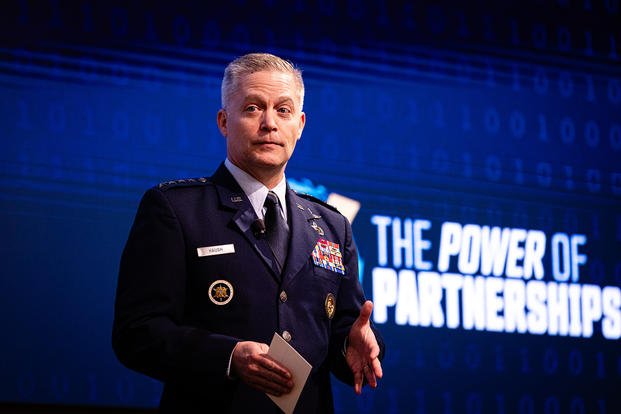Leadership Changes at NSA and Cyber Command Raise Concerns
The recent dismissal of two senior figures at the National Security Agency (NSA) and U.S. Cyber Command has stirred unease within the cybersecurity community and among lawmakers across the political spectrum. This unexpected move by President Donald Trump’s administration has sparked questions about the direction of the U.S. cybersecurity strategy.
Air Force Gen. Timothy Haugh, who led both the NSA and Cyber Command, and Wendy Noble, the NSA deputy director, were dismissed on April 3. Their removal has been linked to influence from a far-right conspiracy theorist, raising concerns over perceived disloyalty rather than performance.
The administration has yet to provide a detailed explanation for these firings. Pentagon spokesperson Sean Parnell acknowledged Haugh’s “decades of service” but did not elaborate on the reasons for his dismissal.
These firings have unsettled experts and officials, especially given the increasing cyber threats from adversaries like China. The Wall Street Journal recently reported that China admitted to being behind a significant cyber attack on U.S. infrastructure last year.
A cybersecurity service member, speaking anonymously, criticized the administration’s actions, describing them as either “incompetence” or a deliberate weakening of cyber capabilities.
Adding to the uncertainty are potential budget cuts at the Cybersecurity and Infrastructure Security Agency (CISA) and the revocation of former CISA chief Christopher Krebs’ security clearance, following his defense of the 2020 election’s integrity.
The situation is further complicated by the recent “Signalgate” incident, where top officials inadvertently exposed sensitive military information due to misuse of a messaging app, leading to an inspector general investigation.
The dismissals have drawn bipartisan criticism, with some Republicans condemning the move. Rep. Don Bacon, R-Neb., remarked on social media that the action “sets back our cyber and signals intelligence operations.”
Within the cyber community, there was optimism that key agencies would be shielded from extensive cuts. However, this has proven untrue, according to a cybersecurity service member, who noted the distraction caused by rumors of shifting focus to cartels.
Political activist Laura Loomer claimed responsibility for the firings, labeling Haugh and Noble as “Biden holdovers.” Her previous actions include influencing the removal of National Security Council officials, according to The New York Times.
In a collective response, two dozen Democratic senators criticized the removals, stating they “severely compromise our ability to keep Americans safe.”
Recent cyber attacks attributed to Chinese groups have heightened the sense of urgency in U.S. cybersecurity circles. These attacks, exploiting “living off the land” techniques, have targeted infrastructure and collected data from high-profile figures like former Vice President Kamala Harris.
The Wall Street Journal reported China’s acknowledgment of its role in these attacks, indicating heightened cyber tensions between the U.S. and China.
Retired Rear Adm. Mark Montgomery, a senior cyber threat expert, praised Haugh’s leadership, noting the difficulty in finding officers of similar expertise.
Haugh has been succeeded by Army Lt. Gen. William Hartman, who now leads both Cyber Command and the NSA. There are concerns that the agencies might be split, which could undermine their integrated operations.
Hartman has advocated for maintaining the current dual-hat structure, emphasizing its benefits for agility and collaboration in cyberspace operations.
Retired Gen. Michael Hayden, a former CIA and NSA director, expressed concern over the political motivations behind Haugh’s removal and noted changing norms under the current administration.











